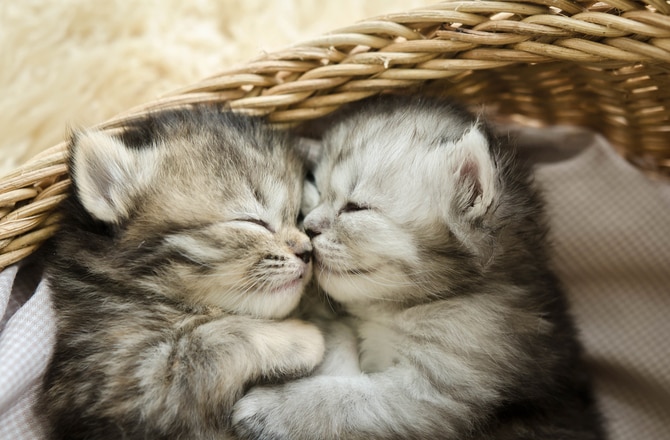
Baby Kittens: A Comprehensive Guide to Their Care and Development
Introduction
Baby kittens, also known as kittens, are undeniably adorable creatures that bring immense joy to their owners. Their playful antics, soft fur, and curious nature can melt even the coldest of hearts. However, caring for kittens requires a significant amount of knowledge and responsibility to ensure their well-being and healthy development. This comprehensive guide will provide you with all the essential information you need to know about baby kittens, from their birth to their transition into adulthood.
Birth and Early Development
Kittens are born after a gestation period of approximately 63-67 days. A litter typically consists of 2-5 kittens, although it can vary depending on the breed and age of the mother cat. Kittens are born blind and deaf, and they rely heavily on their mother for warmth, nourishment, and protection.
During the first few weeks of life, kittens spend most of their time sleeping and nursing. They will gradually open their eyes around 7-10 days after birth and start to hear around 2-3 weeks later. By the end of the third week, kittens will begin to explore their surroundings and interact with their siblings.
Feeding
Kittens should be fed exclusively on their mother’s milk for the first 4-6 weeks of life. Mother’s milk provides kittens with all the essential nutrients they need for growth and development. If the mother cat is unable to nurse her kittens, they will need to be bottle-fed with a kitten-specific formula.
Bottle-feeding kittens requires patience and care. Use a kitten-specific bottle and nipple, and warm the formula to body temperature before feeding. Feed kittens every 2-3 hours, and gradually increase the amount of formula as they grow.
Weaning
Kittens typically start to wean from their mother’s milk around 4-6 weeks of age. The weaning process should be gradual to avoid digestive upset. Start by offering kittens small amounts of kitten food soaked in warm water. As they become more accustomed to solid food, gradually reduce the amount of formula and increase the amount of food.
Litter Training
Kittens are naturally inclined to bury their waste, so litter training is relatively easy. Place a litter box in a quiet corner of the room and fill it with kitten-specific litter. Show kittens the litter box and encourage them to use it after they eat or wake up from a nap.
Socialization
Socialization is crucial for kittens’ development. Expose kittens to different people, places, and experiences from a young age. This will help them become well-adjusted and confident cats.
Health Care
Regular veterinary checkups are essential for kittens’ health. Your veterinarian will perform a physical exam, administer vaccinations, and provide deworming treatments. Kittens should also be spayed or neutered at the appropriate age to prevent unwanted litters and certain health problems.
Common Health Issues
Kittens are susceptible to various health issues, including:
- Upper respiratory infections: These are common in kittens and can cause symptoms such as sneezing, coughing, and nasal discharge.
- Diarrhea: Diarrhea can be caused by various factors, including dietary changes, parasites, and infections.
- Eye infections: Kittens can develop eye infections due to bacteria or viruses. Symptoms include redness, swelling, and discharge.
- Skin infections: Skin infections can be caused by bacteria, fungi, or parasites. Symptoms include itching, redness, and hair loss.
Signs of Illness
It is important to be aware of the signs of illness in kittens. Contact your veterinarian immediately if you notice any of the following:
- Lethargy or lack of appetite
- Vomiting or diarrhea
- Difficulty breathing
- Discharge from the eyes or nose
- Skin irritation or hair loss
Conclusion
Caring for baby kittens is a rewarding experience that requires dedication and responsibility. By providing them with proper nutrition, socialization, and health care, you can help your kittens grow into healthy and happy cats. Remember to consult with your veterinarian regularly for guidance and support throughout your kitten’s life.
